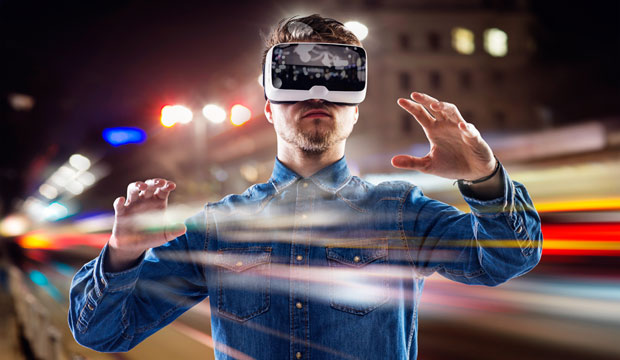Ready Player One and the Troubled Future of VR
One of the issues with virtual reality is that expectations have been overset massively with TV shows like Star Trek: The Next Generation, which promised an artificial reality indistinguishable from reality. VR failed.
It didn't have to -- there is a pattern to bringing out successful technology that is repeatable. You create a complete experience regardless of cost, then cost-reduce it. That way, you have a model for where you need to go. Sadly, the more common path is to try to hit an aggressive price point first and deliver a crippled experience.
The coming movie Ready Player One showcases the eventual goal for VR as an uncompromised platform: a meshing of technology and the human experience so that the user can't perceive the difference.
We are at least a decade out from being able to provide this level of experience regardless of cost, which means we are likely at least 15 years out from being able to do it affordably.
What we can do well now are high-resolution displays and vehicle emulation. We have driving and flying simulators today that are close enough to reality so that you can get immersed in the experience -- so why don't we focus on that?
A failed strategy is being favored repeatedly over one that almost ensures success.
Rush to Revenue
I think the primary problem, and we saw it with 3D as well, is that executives see a path to revenue that seems like a straight line but is anything but. What is kind of disturbing is that often these same executives wouldn't touch the resulting product with a 10-foot pole.
If you look at the initial offerings from Oculus and HTC, they were too expensive, the quality of the experience was too low, and the setup was unacceptably difficult. They literally missed on every vector, and the early adopters who bought the products were burned, lengthening significantly the path to eventual success.
This speaks to a problematic characteristic of product-focused companies: the pervasive belief that if you build it, buyers will come. This view exists both in consumer and industrial segments, and it results in inadequate products being shotgunned to market without any real idea what the product requirements are.
In some cases, as with the Microsoft Zune and VR, the requirements were known -- they were just ignored. This is the problem with a product-centric approach.
Customer Centric
One of the fascinating things about the current market is that Apple, which remains the most highly valued company in its class, is the only consumer firm that is customer-focused. How you can tell the difference is that the number of products is dramatically lower than competitors, each product is tightly curated, and each is adequately funded upon release.
With a customer-centric company, the customer is at the center of the decision. You spend far more time on planning and analysis to develop the product, and far more money on creating demand for it once it is released.
As Apple has showcased, when you get this right you can charge more, and you have more loyalty. You can sustain a higher valuation and higher margins than product-focused companies. What strikes me as strange is that Apple seems to be shifting to a product-focused model, which is why it has been having issues with an increasing number of products and why it had to pull the HomePod.
So, while there is a successful approach and one company that has used it successfully, that one company seems to be drifting away from the model, which won't end well.
Wrapping Up
Watch Ready Player One or read the book (it is a really good read), and you'll get a sense for what is coming and how far we must go to get there. We'll hope the dystopian world that it projects isn't coming as well, but the eventual future of VR is amazing.
We could get to an acceptable product sooner -- but if the industry continues to toss out poor experiences regardless of price, the path will be far longer than it needs to be. I thought there was hope once I heard Apple was going to enter the segment, but its own drift to become a product-focused company and the failure of its HomePod doesn't bode well for that outcome.
You'd figure it would be easy to be customer-centric -- but sadly, it isn't. That is why so many of these efforts fail so badly. 
Have you read the book Snow Crash by Neil Stephenson? The world in Ready Player One reminds me of Stephenson's world. Between this and the new Blade Runner, it's cool to see the cyberpunk genre work it's way back into the popular consciousness.
On the topic of VR generally, there have been a few false starts in the past - I remember the Virtual Boy in the mid 1990s. But the infrastructure and ecosystem around VR is much stronger than it was then. With 3D movies being main stream there is a ton of ready made content out there, not to mention vehicle simulators as you mentioned. At this point I think the challenges are less technology and more business model.